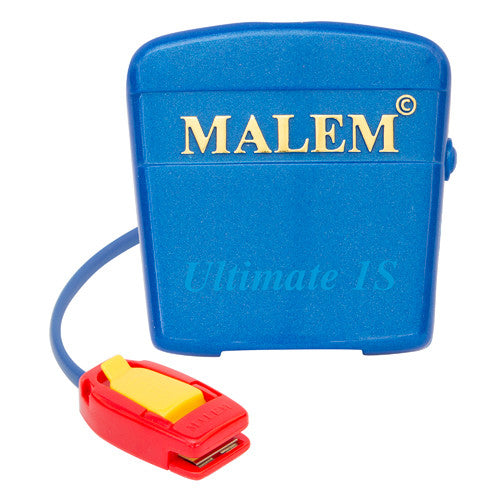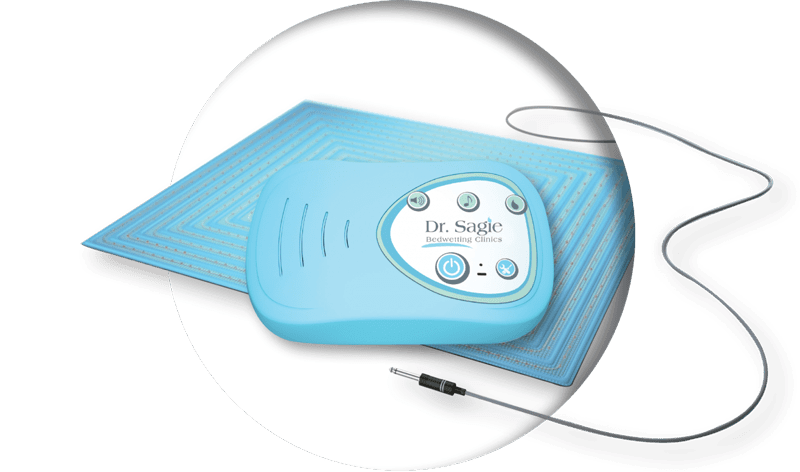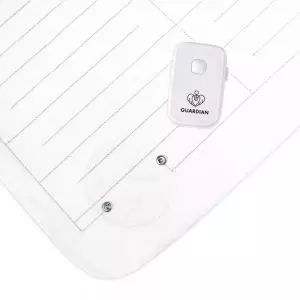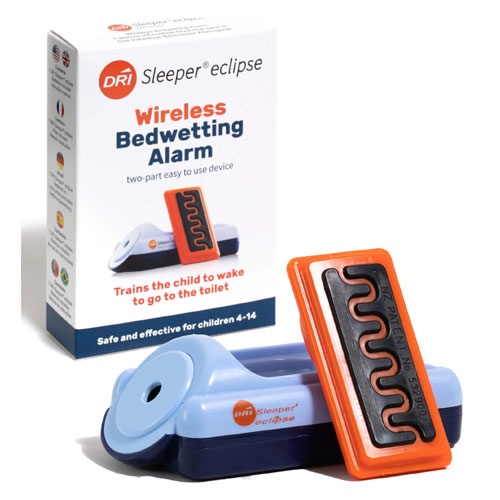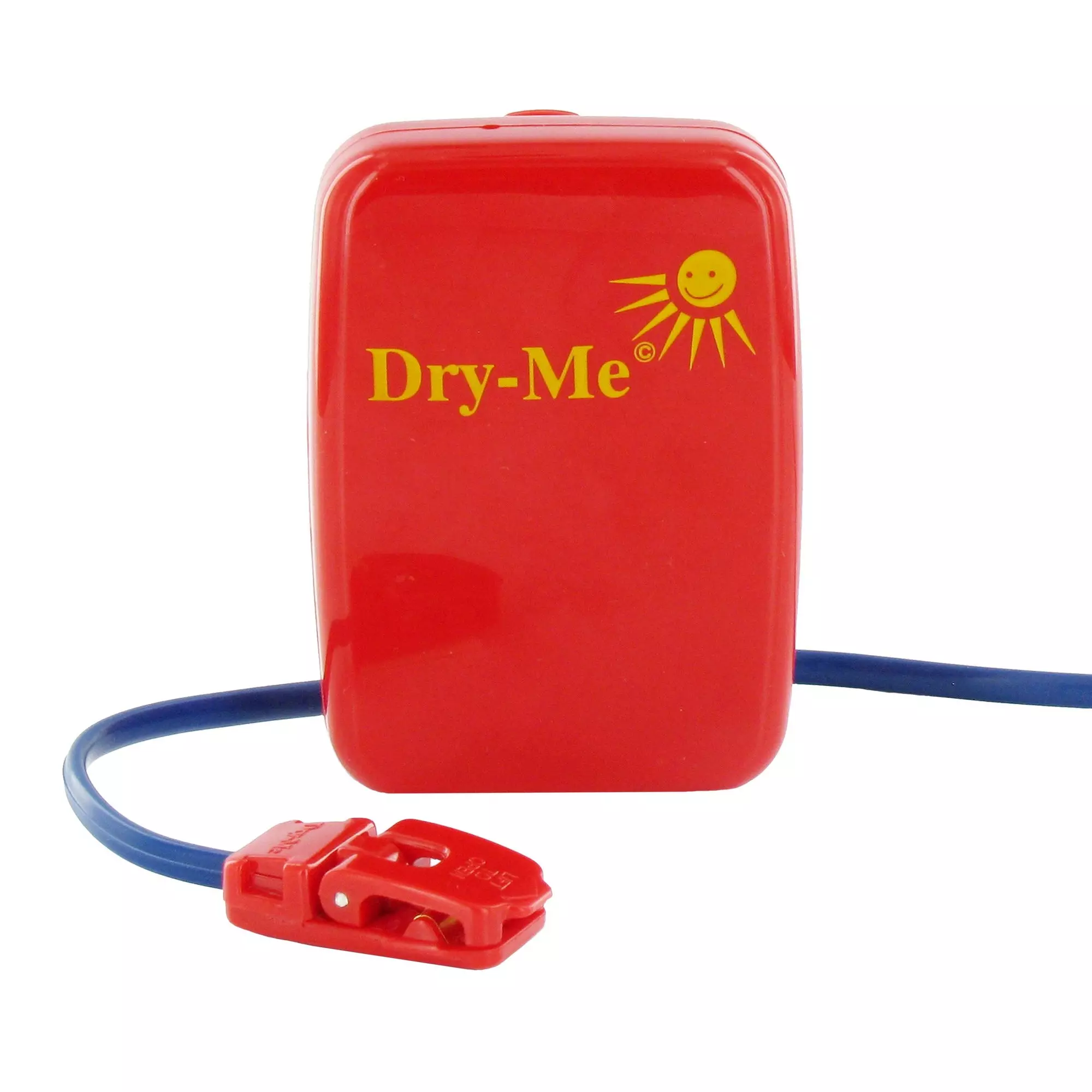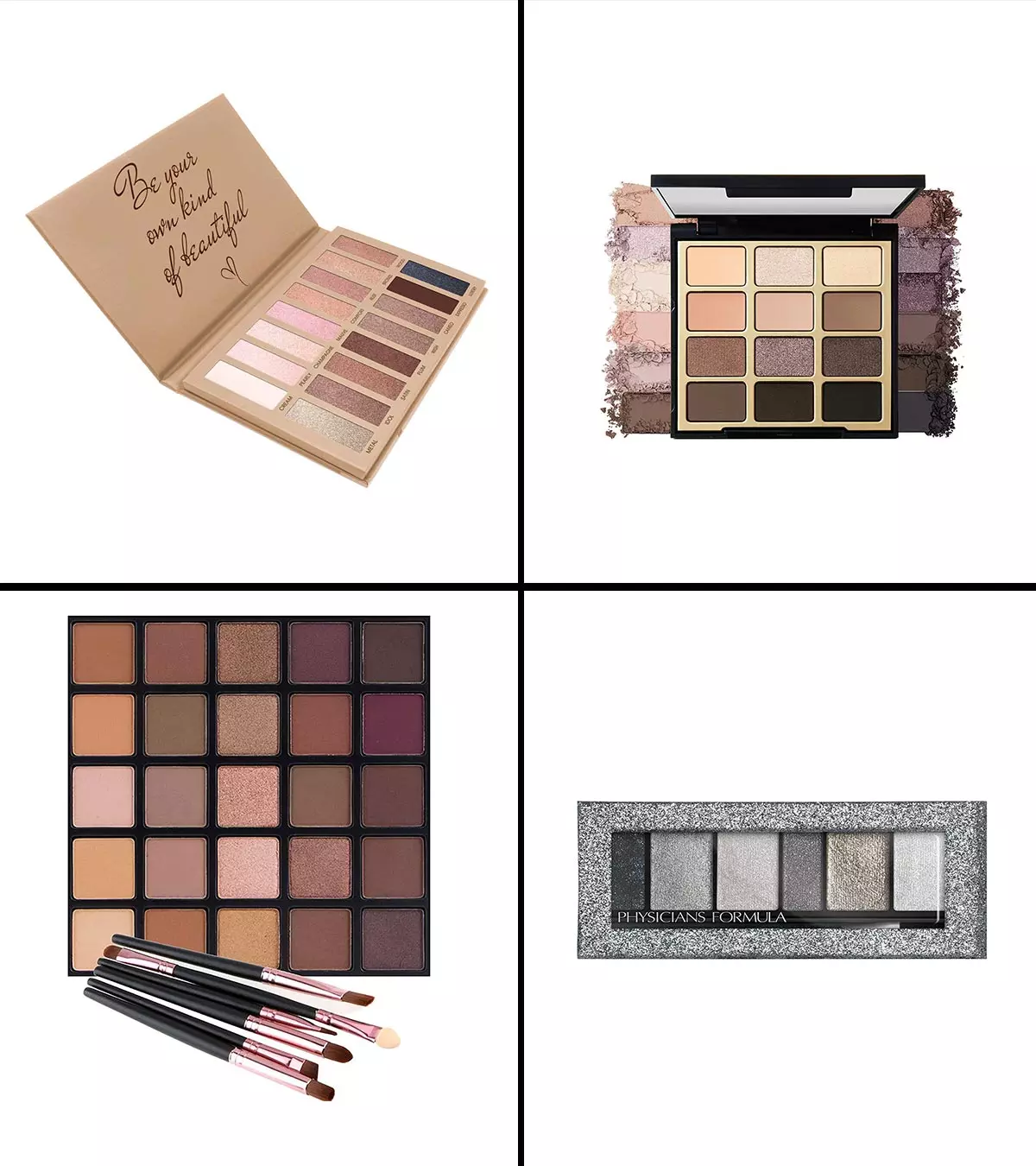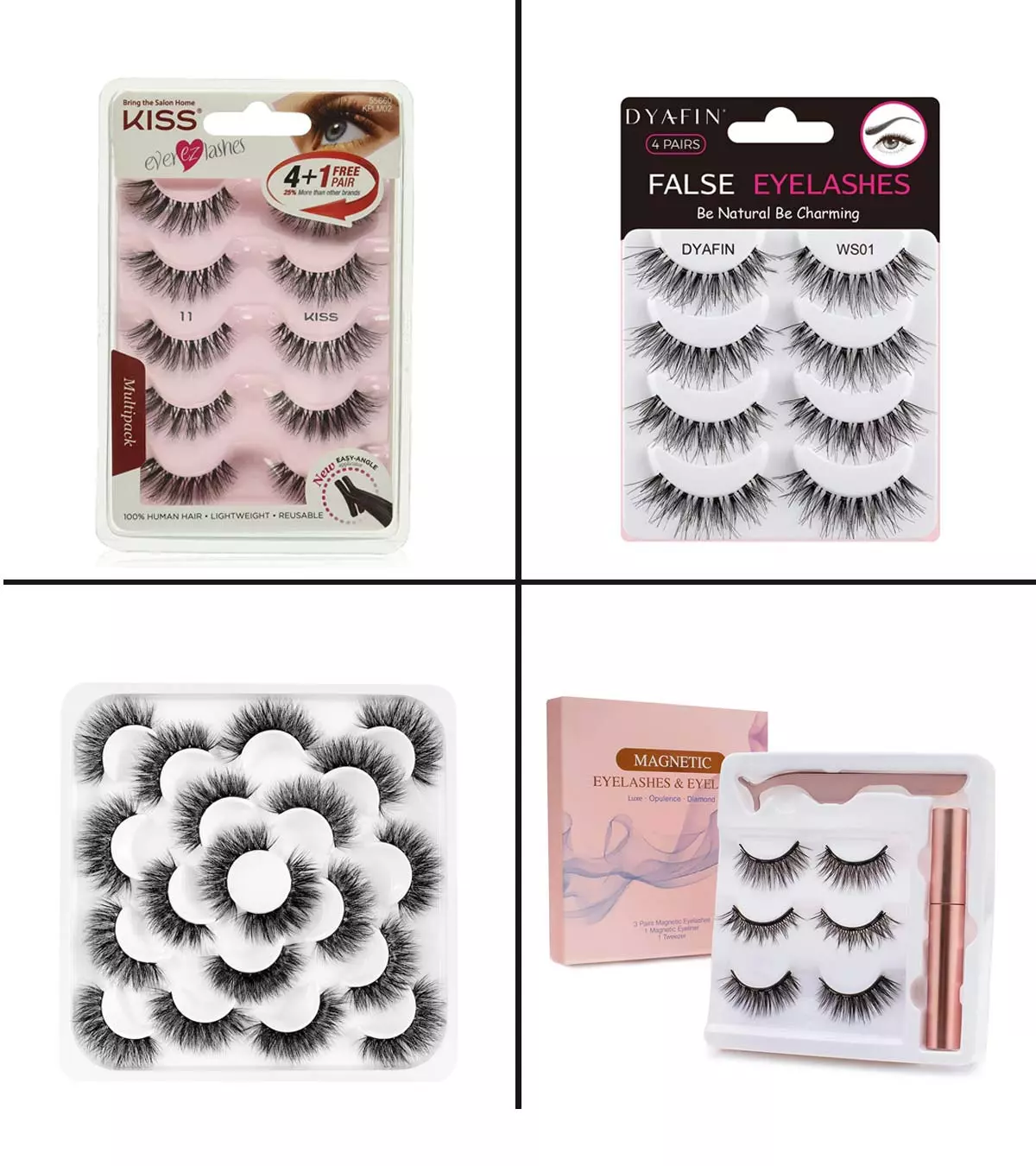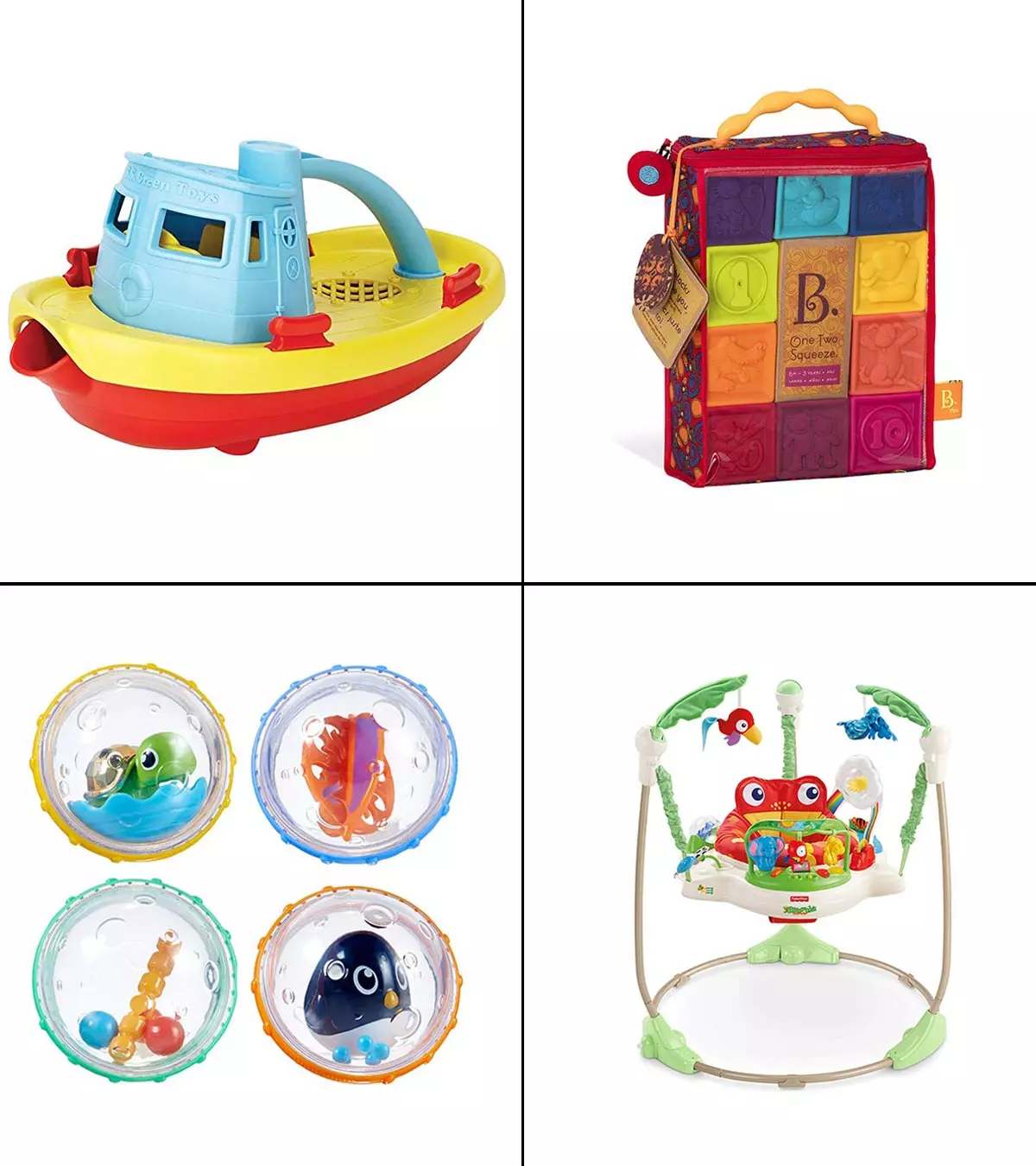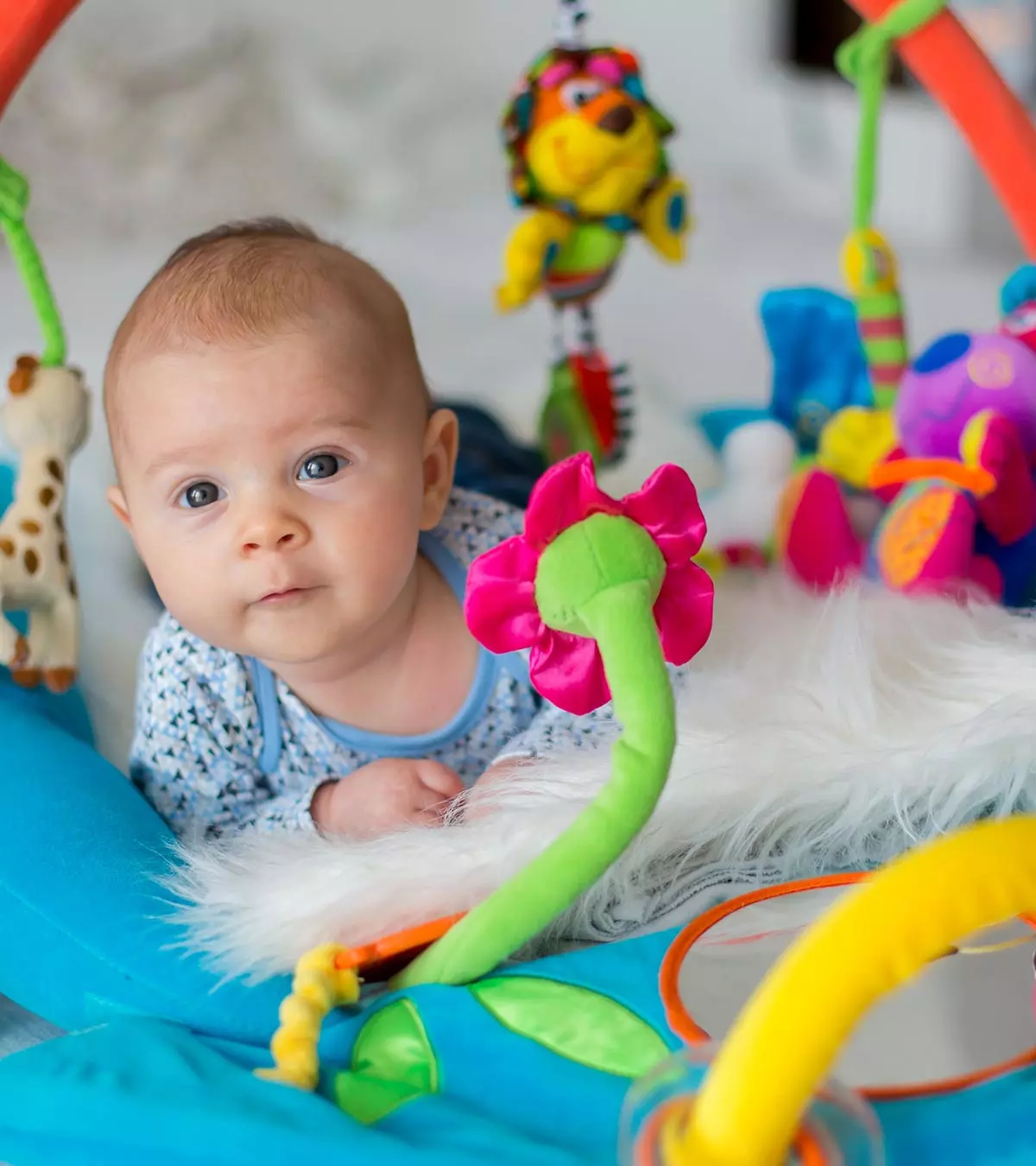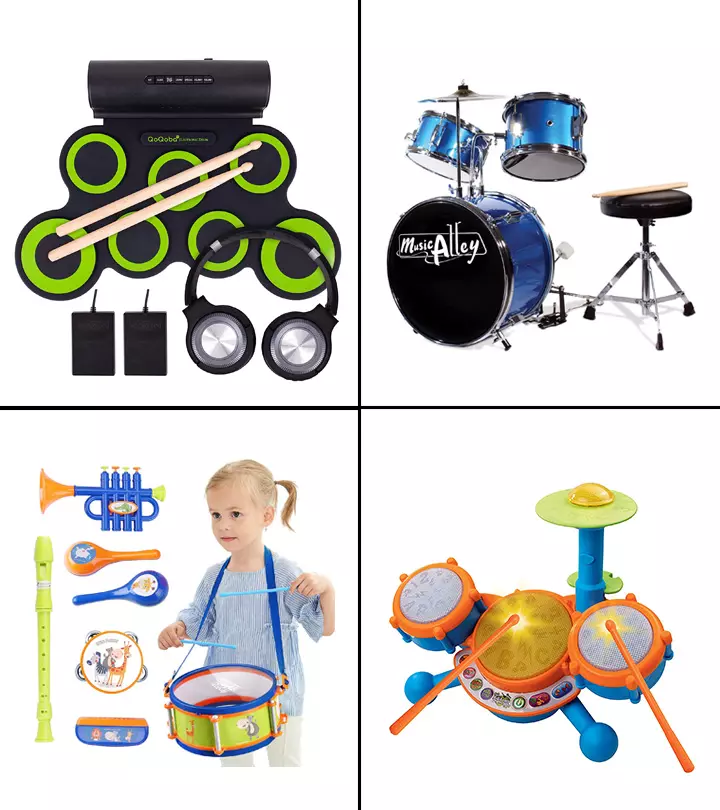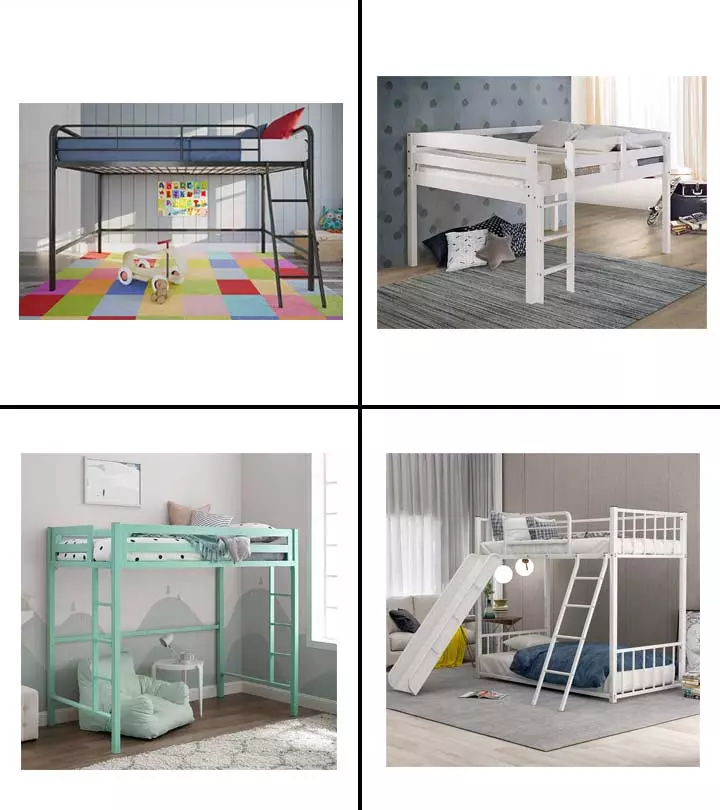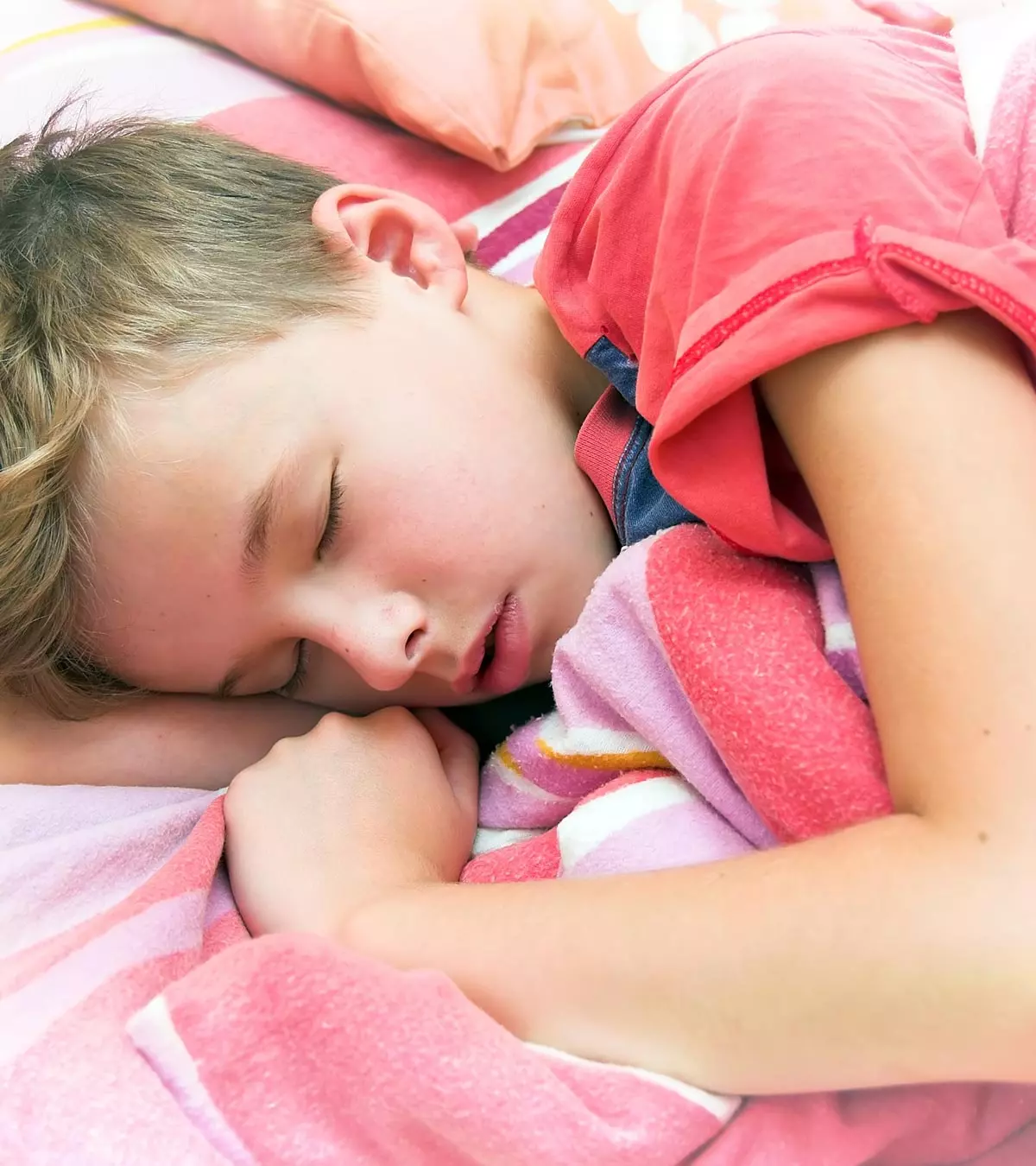
If your child experiences nocturnal enuresis, we have created a list of the best bedwetting alarms for kids to help you out. Bedwetting is a common problem among children. When they are in a deep sleep, they might be unable to wake up on time to relieve themselves. A bedwetting alarm can alert your child at a particular time during the night, slowly turning it into a habit. These alarms come with high-quality sensors that can sense a single drop of moisture and alert immediately.
With various designs and features, choosing the right alarm may be challenging. So, take a look at the multiple tried-and-tested options to choose one that suits your child’s requirements.
Top Picks
Best Bedwetting Alarms For Kids
1. Best Clip-On Wired Bedwetting Alarm: Malem Ultimate Alarm for Boys and Girls
One of the top-selling bedwetting alarms for children, the Malem Auditory alarm has both an audible alarm that can awaken even sound sleepers. The alarm weighs one ounce and has a clip-on feature to attach to the kid’s pajamas. As per reviews, you can set it to sound only, vibration only, or both sound and vibration.
Malem Ultimate alarm is an award-winning product vouched for by parents.
Alarm type: Wired alarm, battery-operated
Pros
- Strong vibration
- Recommended by doctors
- Warranty available
- Detects the slightest presence of urine
Cons
- Some may find the sound to be scary
- Sensor may be uncomfortable
 Quick Fact
Quick Fact2. Best Customizable Bedwetting Alarm: Therapee Bedwetting Alarm
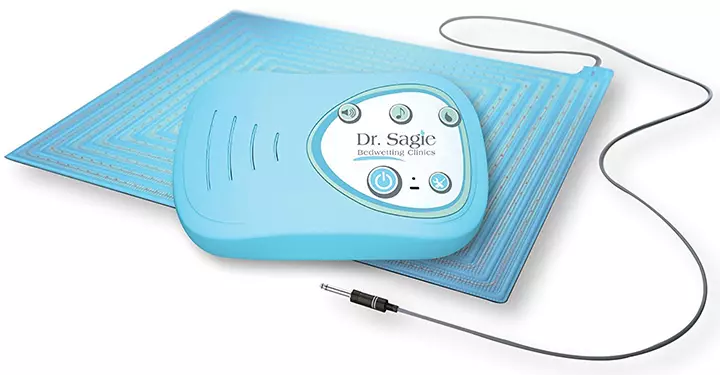
A slightly expensive option, Therapee Bedwetting Alarm by Dr. Sagie’s Bedwetting Clinics is one of the most recommended alarms for adults and children dealing with bedwetting issues. The alarm comes with a safe bed-pad and is customized to suit the individual’s requirements. Get to know about the reviewer’s experience in his video and learn more about the tested product.
The alarm is suitable for children aged between four and 18.
Alarm type: Wired alarm, battery-operated
Pros
- Interactive online program included for tracking progress
- CE Mark and FDA-registered
- Made with state-of-the-art software
- Gives tailored advice to reduce bedwetting
Cons
- May emit false alarms frequently
- Wires may get frayed
3. Best Easy-To-Use: Guardian Bedside Bedwetting Alarm For Kids
Suitable for children, teens, and adults, the Guardian bedwetting alarm is easy to operate and can be set up in a few minutes. The tried-and-tested bedside alarm unit offers eight alarm tones and strong vibrations to help your child wake up quickly. It features a soft reversible sensor mat that connects to the alarm unit placed at the bedside with a detachable cord to ensure there are no wires present on your body. Your child can also sleep directly on the mat for better detection.
Alarm type: Detachable cord, battery-operated
Pros
- Cotton mat is available in two sizes
- Can be used in silent mode
- Machine-washable and dryer-friendly mat
- Quick-detection technology
Cons
- Some may find the alarm volume low
- Some may find it a tad too sensitive
Malem Ultimate Alarm for Boys and Girls Best Clip-On Wired Bedwetting Alarm | Therapee Bedwetting Alarm Best Customizable Bedwetting Alarm | Guardian Bedside Bedwetting Alarm For Kids Best Easy-To-Use | |
|---|---|---|---|
| Color | Royal Blue | Blue | White |
| Batteries | 2 AAA batteries required | 4 AA batteries required | 2 AAA batteries required |
| Dimensions | 2 x 0.8 x 2 inches | - | - |
| Weight | 0.8 Ounces | - | - |
| Rating | |||
| Reviews | 568 | 1,521 | 219 |
| Price | $105.95 | $299.0 | $99.99 |
4. Best Volume-Adjustable Bedwetting Alarm: Chummie Bedwetting Alarm

Chummie is one of the best bedwetting alarm brands for children, be it the functionality or design. The device has loud sounds, strong vibrations and bright lights that go off once the alarm is triggered. The device has a large urine detection silicone sensor and a comfortable clip that does not poke when the kid sleeps. The alarm has eight different tones and volume control that you can set to your liking. This video review will help you get more details about the product.
Alarm type: Wired, battery-operated
Pros
- Patented technology
- Powered by advanced algorithms to detect urine
- Syncs with a free smartphone app for online support
- Suitable for deep sleepers
Cons
- May require frequent troubleshooting
- May be challenging to stop the beeping
5. Best With Strong Vibrations: Chummie Elite Bedwetting Alarm For Children

Here’s a bedwetting alarm recommended by pediatricians. It is a bedwetting alarm controlled by a microprocessor and comes with safety algorithms. The alarm features five loud alert tones and powerful vibrations and light alerts. The alarm is significantly larger than other bedwetting alarms, and its sensor is made of non-corrosive and soft silicone for durability. For a seamless experience, this alarm can be connected to a mobile app for gaining access to FAQs, finding online support, and watching instructional videos.
Alarm Type: Wired, battery-operated
Pros
- Available in three colors
- Lightweight
- Comfortable
- Easy maintenance
Cons
- May require troubleshooting
- Cord may disconnect easily
6. Best Washable: Wet-Stop3 Kit Bedwetting Enuresis Alarm
You can now track how well your child responds to a full bladder by using The Wet Stop3 Kit Bedwetting Alarm reward chart and stickers and acknowledge any milestone or progress. The wearable alarm is powered by two AA batteries and comes with a sensor cord that can be placed underneath the sleepwear. The bedwetting alarm is washable and reusable, making it easy for clean-ups.
Alarm type: Battery-powered, wireless
Pros
- Responds to a full bladder
- Washable and reusable
- Easy for clean ups
- Comes varying alarm tones to not get used to one
Cons
- May come unclipped while sleeping
- Alarm sounds may frighten the child due to loud volume
 Do remember
Do remember7. Best Wireless Alarm: DRI Sleeper Eclipse Bedwetting Alarm For Children
The DRI Sleeper Eclipse bedwetting alarm for children comes as a wireless tool designed in tabletop mounting type. It has a noise level of 98 dB and is controlled via a smartphone app. The alarm has a battery-based operation run by two lithium metal batteries. One of the best wireless bedwetting alarms for children, it can be safely placed near children and up to 40 ft away from parents for maximum effectiveness. It comes with a plastic-coated sensor and can be used by people between five and 18 years, making it a popular option among healthcare professionals.
Alarm type: Wired, battery-operated
Pros
- No skin irritation
- Minimal use of diapers when sleeping
- Small, safe, and sensitive
- Three easy sensor placement options
Cons
- Low on moisture detection accuracy
- Material may be thinner than expected
8. Best Compact: Teqin Bedwetting Alarm

Suitable for deep sleepers, this bedwetting alarm offers two adjustable modes–vibration and sound with vibration–accompanied by blue flashing lights. The device is compact and easy to hide to prevent affecting your sleep. It has a highly sensitive drop detection sensor that can sense the first drop of urine and immediately alert the user. You can adjust the band and fix the clip to the underpants for accurate detection.
Alarm type: Wired, battery-operated
Pros
- Loud 90dB volume
- Includes two pages of record stickers
- Includes a user manual
- Includes built-in rechargeable battery and USB cable
Cons
- May get triggered by sweat
- May get loose often
9. Best Waterproof Pad Bedwetting Alarm: Wet-Stop3
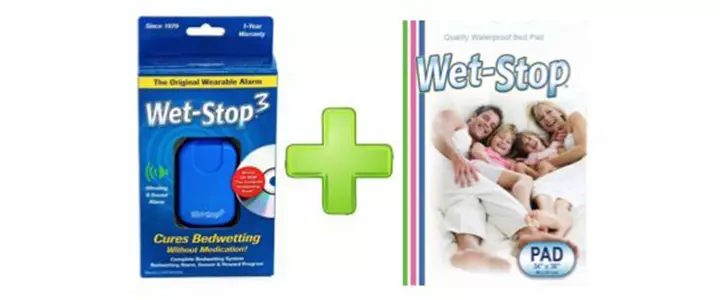
Wet-Stop3, known for its positive reviews, is an easy-to-use alarm with a waterproof pad for the bed. The alarm is efficient enough to wake up the child at the right time and does not shut off until the moisture is removed. In short, your child cannot turn it off and go back to sleep without going to the bathroom.
The alarm has five unique sounds plus vibration that awaken even the deepest sleepers. You also get a bedwetting guide with stickers and a calendar along with this alarm.
Alarm type: Wired, battery-operated (2 AAA batteries required)
Pros
- Instructions available in six languages
- Tracks progress using a star chart
- FDA-registered
- CE safety-certified
Cons
- Sensor may come off unexpectedly
- Volume cannot be adjusted
10. Best Watch-Style Bedwetting Alarm: Tenscare Dn Trainer
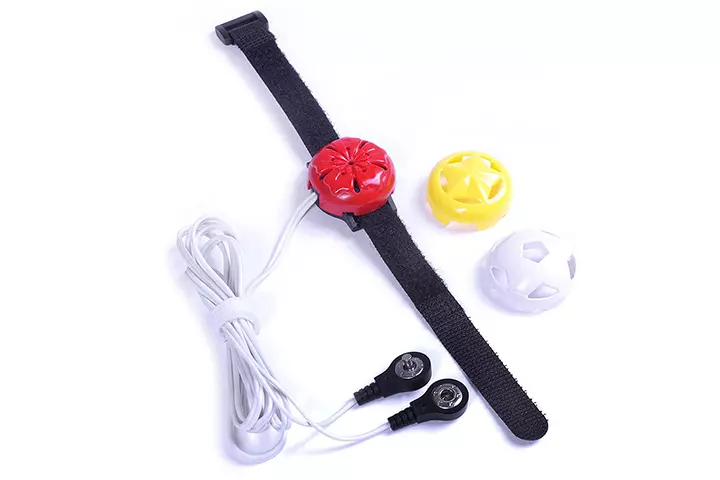
Wearing an alarm can be embarrassing for the teenager. But if the alarm looks more like a watch and less like a pee-pee alarm, then it shouldn’t be a problem. TensCare Dn Trainer is a bedwetting alarm and trainer that can be worn on the wrist, while the sensors are connected to underwear discreetly, through the pajamas. The tried-and-tested alarm goes off when the sensor detects moisture, waking up the kid before they wet the bed completely.
Alarm type: Wired, battery-operated
Pros
- Patented technology
- Powered by advanced algorithms to detect urine
- Sync with a free app for online support
- Imported
Cons
- May not suit children aged below five years
- May not work well when paired with thin innerwears
11. Best Magnetic Sensor Bedwetting Alarm: DryBuddy Magnetic Sensor Bedwetting Alarm
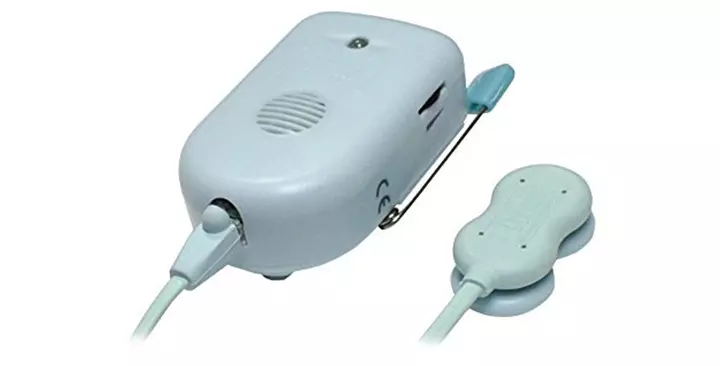
DryBuddy bedwetting alarm with a magnetic sensor can be used by children and adults. The alarm has music and vibration which help in waking kids up as soon as they start to wet the bed. The sensors are magnetic, which means that they just stick to the clothes without damaging them. It has an LED light that makes using it at night simple. The device comes with a one-year warranty.
Alarm type: Wired, battery-operated
Pros
- FDA-registered
- Wireless
- HSA-eligible
- Suitable for special needs patients
Cons
- Results may be inconsistent
- Range may be poor
12. Best Battery-Operated Bedwetting Alarm: Dry-Me Bedwetting Alarm
A small, red colored box-like device attached to a sensor through a cord, the Dry-Me bedwetting alarm is one of the best options you have in the market. The alarm has eight different tones along with a vibration option that is intense enough to wake the kid up quickly. The alarm is lightweight and safe for kids.
Alarm type: Wired, battery-operated (two AAA batteries required)
13. Best Programmable Bedwetting Alarm: Shield Prime Bedwetting Alarm for Boys and Girls
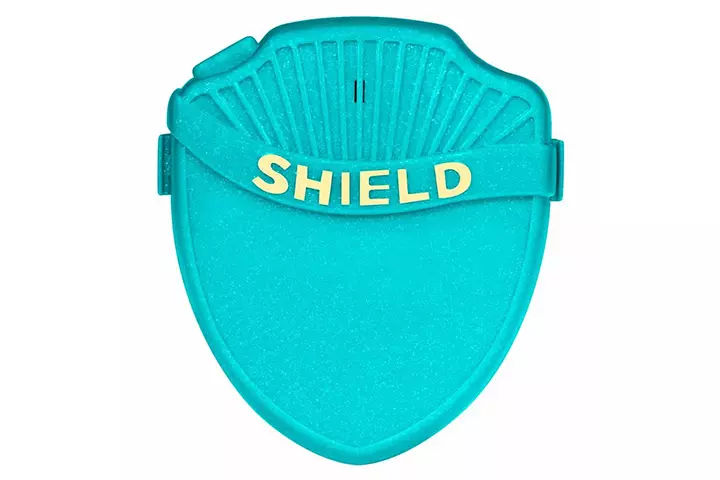
Shaped like a shield, the Shield Prime bedwetting alarm comes in two attractive shades of blue. It has a sensor attached to it via a cable. The sensor can be clipped to the underwear of the kid, while the wearable alarm can be attached to the vest or t-shirt. The alarm has a programming button that can be used to set it up—change the audio tones or vibration options while testing them. This is ideal for children aged five and above.
Alarm type: Wired, battery-operated
Pros
- Motivation reward system included
- Microprocessor-controlled alarm
- Suitable for deep sleepers
- Warranty included
Cons
- Sound may scare the user
- Some may find it bulky
14. Best Easy-Detect Bedwetting Alarm: Smart Bedwetting Alarm for Deep Sleepers And Children

The Smart bedwetting alarm for deep sleepers and children is a box-shaped device that can be attached to the clothing. The alarm comes with four attractive design options, each made especially for kids. The tested clip sensor can be clipped to the undergarment, while the alarm can be attached to the clothing over it without causing any discomfort during sleep, making it a perfect alarm for enhanced comfort. The stronghold of the sensor ensures that it is in the right place to detect any moisture and trigger the alarm.
Alarm type: Wired, battery-operated
Pros
- Portable
- Synchronized sounds
- Unisex
- Three operation modes
Cons
- May not be durable enough
- Clip may be uncomfortable
15. Best Two-Step Shutoff Bedwetting Alarm: DryEasy Bedwetting Alarm with Volume Control

Like most other alarms, DryEasy is a wired alarm with a sensor that has to be attached to the child’s inner wear before going to bed. You can choose from six sounds, a vibration option and a two-step turn off, which ensures that the child is awake enough to go to the bathroom before going back to sleep.
Alarm type: Wired, battery-operated (needs two alkaline batteries)
Pros
- CE-certified
- ISO 13485-certified
- One-year warranty available
- Improve toggle clamp locks device securely in place
Cons
- Device may heat up
- Wires may be uncomfortable
How To Choose The Right Bedwetting Alarm?
Here are a few factors to consider when choosing a bedwetting alarm.
- Set up: Ensure the alarm is easy to set up for smooth operation everyday. It should be lightweight with simple controls. You can choose between wired and wireless, battery-operated designs as per your convenience.
- Durability: Choose bedwetting alarms made of durable materials and anti-corrosive sensors to prevent it from malfunctioning and provide accurate detection. The alarm and its accessories should be long-lasting and endure rough use.
- Quality: Look for healthcare professional-recommended products and those certified by major institutions, including FDA and CE, to ensure high-quality performance.
- Features: Choose bedwetting alarms with loud alarm sounds and a strong vibration to wake up heavy sleepers easily. You can opt for those with multiple sounds and customization options. Check the battery life, adjustable volume function, lights, compact size, and more to suit your needs.
How Do Bed Wetting Alarms Work?
Bedwetting alarms or moisture alarms get triggered when their sensors are exposed to even the slightest amount of moisture. When triggered, the alarm lets out an audible alert or a vibration to wake up the sleeping individual before they wet the bed.
The alarm is usually attached to the child’s underwear or pajamas and triggers as soon as the first drop of urine is out. Alarms can be wired or wireless, wearable or desktop and ones that give out a loud sound along with vibration.
The bottom line is that these alarms have been effective in getting kids and teens rid of their bed-wetting habit.
Frequently Asked Questions
1.At what age is bedwetting a problem?
Bedwetting is considered normal up to the age of seven years (1). Nevertheless, it may continue in teens, with about 1-3% of children in late teens having it (2). You may speak to a pediatrician about your child’s bedwetting if it continues after seven years.
2. What are the types of bedwetting alarms?
The two most common types of bedwetting alarms include (3)
- Pad-and-bell alarms: Sensor pad located underneath a sheet on which the child sleeps.
- Body-worn alarms: Sensor attached to the child’s clothes, such as pajamas.
3. At what age can a child use bedwetting alarms?
A child can start using a bedwetting alarm when they are five years old. At this age, they can understand bedwetting is an issue and know an alarm helps.
4. How long does it take for a bedwetting alarm to work?
It might take around four to eight weeks for a bedwetting alarm to work and show effective results.
5. Do bed-wetting alarms work with pull-ups?
Using pull-ups with a bedwetting alarm is not recommended, as it may slow down the process of helping the child take responsibility for their bedwetting. Instead, it is best to use regular underwear and let the alarm alert the child when they have wet the bed.
6. Does a bedwetting alarm come with multiple alert options?
Yes, some bedwetting alarms have the option to let you choose different alert tones or modes to suit different individuals.
7. Does a bedwetting sensor have a clip?
Not all bedwetting sensors use clips to attach the sensor to the underpants. Some may have magnetic sensors or a strip that should be taped to the underpants. You will also find wireless options that use a mat or other techniques to make the process more child-friendly.
Why Trust MomJunction?
Having written numerous articles about kids’ products, Wedetso Chirhah is well-versed with children’s common problems and requirements. Keeping your convenience, quality requirements, and safety concerns in mind, he has listed the best bedwetting alarms for your child. After extensively researching user reviews, he has explained the details of each product. These bedwetting alarms are durable and a great way to prevent your child from wetting the bed.
The Bottom Line
With a bedwetting alarm, you can kiss away your child’s bedwetting days. This useful device is programmed to alert your child when it senses any moisture, reminding them to go to the bathroom much before they wet the bed. When selecting an alarm, you should consider the alarm type, vibration, lights, volume control, and sound best suited to your child’s needs. Also, ensure the sensors are efficient and easy to attach to your child’s innerwear. Our top choices from this list include the DRI Sleeper Eclipse Bedwetting Alarm with a plastic-coated sensor and the Malem Ultimate Alarm for Boys and Girls with sound and vibration modes. You may also choose the Therapee Bedwetting Alarm for its customizable functions.
Infographic: How To Use Bedwetting Alarms Effectively?
A bedwetting alarm detects moisture and triggers an alert, training the child to wake up and use the toilet, ultimately promoting dry nights and building confidence. However, it is important to follow specific steps while using them to maximize their effectiveness. Refer to the infographic below to learn how to use bedwetting alarms for optimal results. Illustration: Momjunction Design Team
Are you using a bedwetting alarm for your child? Tell us about it here.
References
- Jeffrey Allen Penman; (2018); When Should I Be Concerned About My Child’s Bedwetting?
https://intermountainhealthcare.org/blogs/when-should-i-be-concerned-about-my-childs-bedwetting/ - Bedwetting in Children & Teens: Nocturnal Enuresis.
https://www.healthychildren.org/English/health-issues/conditions/genitourinary-tract/Pages/Nocturnal-Enuresis-in-Teens.aspx - Enuresis Alarms in the management of bedwetting.
https://www.ncbi.nlm.nih.gov/books/NBK62711/#:~:text=There%20are%20several%20types%20of - Directions for Your Child When Using a Bed-Wetting Alarm.
https://www.kidney.org/atoz/content/bedwetting
Community Experiences
Join the conversation and become a part of our nurturing community! Share your stories, experiences, and insights to connect with fellow parents.
Read full bio of Wedetso Chirhah
Read full bio of Shreya Vishwanathan
Read full bio of Poulami Nag




